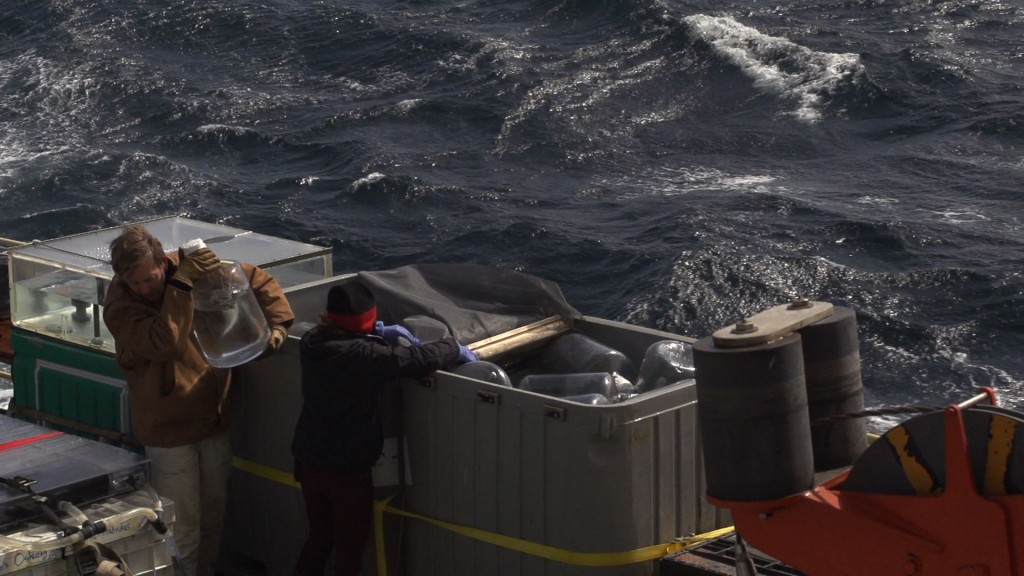Dena Seidel reports that despite the weather, Oscar Schofield and Grace Saba, both of IMCS and of the LTER phytoplankton group, keep sampling.
In the photo below, you can see Oscar (brown coat) and Grace (black coat) on deck in 50 knot winds collecting water that has been incubating to test their phytoplankton and chlorophyll levels. Phytoplankton a very small photosynthetic organisms that use chlorophyll to capture energy from sunlight for photosynthesis.

So what are phytoplankton and why are they so important?
Phytoplankton are photosynthesizing microscopic organisms that live near the surface of the water. Phytoplankton use sun light to take up and convert atmospheric carbon dioxide into biomass (cellular components of each cell) and oxygen. Because they are able to use the sun’s energy to create biomass, they are called primary producers. Despite being limited by sunlight for half of the year, Antarctic phytoplankton (especially along the western Antarctic Peninsula) are among the most prodigious primary producers in the ocean. Furthermore, their role as primary producers of biomass makes their abundance or decline critical to the health and well being of Antarctic ecosystems.
In addition to their role at the base of the Antarctic marine ecosystem, the fate of phytoplankton biomass is crucial to understanding climate change feedback loops. By conducting experiments to study phytoplankton physiology and working with other components of the LTER (such as ecologists studying microbes and zooplankton), we are also trying to develop a clear picture of the fate of phytoplankton biomass once it enters the Antarctic ecosystem. Whether this phytoplankton biomass is recycled by bacteria, grazed by krill, or merely settles to the sea floor has significant consequences for not only the Antarctic food web, but also for global biogeochemistry and our understanding of climate change dynamics.
For more information on the LTER phytoplankton research, see:
http://pal.lternet.edu/sci-research/phytoplankton/
http://news.rutgers.edu/medrel/news-releases/2009/03/phytoplankton-is-cha-20090312
